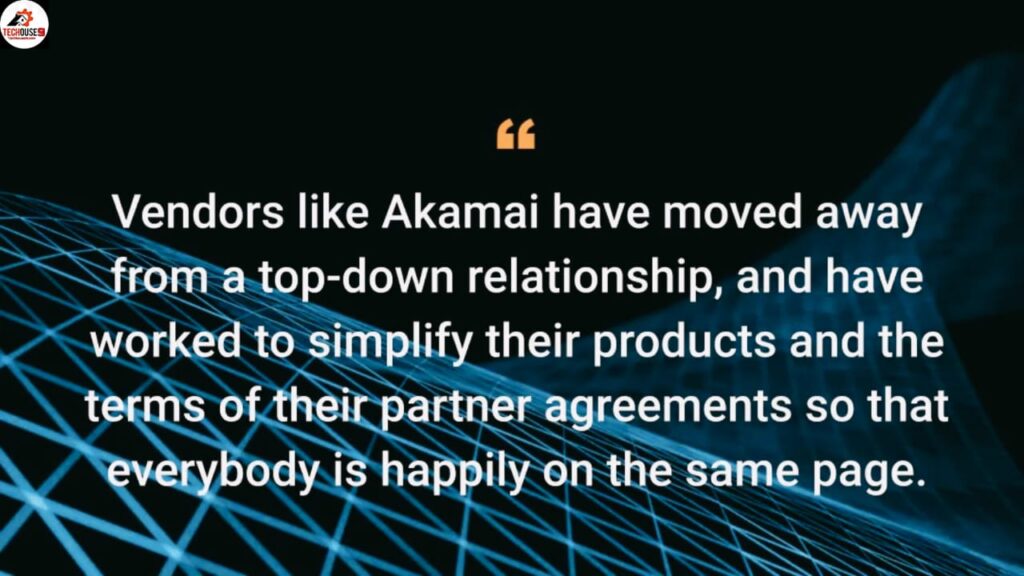akamai technnologes channel

Growth in the Future Depends on Channel Partners
Global leaders in business have choose Akamai to create, distribute, and protect their digital experiences, improving people’s lives billions of times a day. However, the nature of sales has evolved in the modern era from completing straightforward single transactions to developing closer bonds with reliable service providers.
In light of this changing climate, channel sales executives who are well-versed in local markets and have solid relationships with their partners are essential to the company’s ongoing expansion. The channel sales leadership team at Akamai discusses the benefits and drawbacks of implementing a channel-first strategy in this post.
Consumers require more
Because today’s customers are more interested in establishing long-lasting connections with their vendors than in making a single transaction, the business-to-business sales relationship is undergoing a huge shift. Product movement is OK, but packaged solutions are becoming more and more popular.
Consumers depend on companies such as Akamai to develop, deliver, and protect their digital experiences in a dependable manner. But suppose they require more? What if they require modification? What happens if customers require a solution combined with other services that go outside the purview of the vendor? In the ever-complex business environment, channel partners are essential to any expansion strategy.
The evolving role of channel sales
Not just customers are looking for long-term partnerships. Significant advancements are being made by suppliers such as Akamai in order to improve, streamline, and fortify their connections with channel partners.
According to Regional Vice President Hans Nipshagen, “you know, they used to say that the people in the channel are the ones that are drinking coffee, maintaining a relationship, [but] not having a business view.” This is an obsolete and antiquated way of thinking about the channel. That’s a false impression. It’s quite the reverse in today’s environment, where IT is becoming more and more complex and a crucial aspect of conducting business.
Hans continues, “We see a growing collaborative nature in vendor-partner partnerships. How can we grow with our partners? Where’s the chance, anyway? What kind of activities should we schedule?
Relationships pay off.
To ensure that everyone is content and on the same page, vendors such as Akamai have shifted away from a top-down relationship and have attempted to simplify both their products and the terms of their partner agreements. In order to give clients with the best solutions possible, partners may now work together and offer input on products. Another benefit of involving partners in the product development process is the development of trust and a sense of ownership.
Because of how crucial the back-and-forth communication is between Akamai and its channel partners, Regional Vice President Tatsuya Suzuki established a Partner Advisory Board to gather feedback.
“We launched a Partner Advisory Board that gathered the key partners as advisors,” he says in clarification. We were able to create more partner-friendly items thanks to the feedback we got. The foundation for creating a culture that is channel-friendly is transparency. It is really significant.

A channel-first approach
In actuality, cooperation adopts a more deliberate tone. “We are trying to streamline some commercial actions for partners so that they can know, hey, what should I focus on?” says Senior Director Dalton Hayakawa. How can I make myself more productive? Therefore, we suggest, “Let’s study your customer base and which strengths you have, rather than you studying the portfolio of all 50 products we have. Then, we’ll decide which offer to start with.”
“We walk the walk and hope we achieve our goal to become truly partner-driven,” Tatsuya Suzuki says. “Akamai is committed to partner business—this is coming from the CEO level.”
Making the partner experience simpler
Before the next sales contact, clients frequently know what they want since they have the ability to independently research and evaluate products. In addition to setting themselves apart through value-added services or packaged goods, channel partners also play the position of a reliable advisor.
Vice President Dave Allen adds, “Customers are consolidating vendors, and everyone is cutting costs, especially in these tough economic times.” Customers are depending on partners to advise them which vendors have the best portfolio and which vendors have the best vision and strategy, even more so than they did a few years ago.

improved connections and outcomes
Hans Nipshagen continues, “We need to make sure that we overcommunicate and that our plans have direction. Consistency in message and mission is crucial.” We are moving forward with our new offerings, but we also need to be aware of any changes a partner may be making to their approach. For everyone to be completely in sync with one another, communication must be ongoing.
In summary, Dave Allen says: “We have to keep in mind that these regional offices, the sales and technical sales and marketing teams, have relationships with a number of different vendors, and that Akamai is not the only vendor that they work with. The simpler, sharper, and more focused our relationship can be once we’ve built a solid foundation together, the better the outcomes will be.”
Using data to tell the story
Data becomes even more crucial as businesses examine their budgets and search for ways to reduce their already low profit margins. In this context, service providers shift their attention to providing the appropriate combination of goods at the appropriate moment and at the appropriate cost.
According to Dave Allen, carriers also need to give the channel the appropriate amount of vendor support and marketing funding. According to Dave, the data will be the ones to reveal whether or not the goals that the group has set out to achieve are being met. And I believe it’s imperative that we hold each other accountable for keeping our part of the agreement. Are we investing at the appropriate level in the crucial areas, and is our partner following suit?
Tatsuya Suzuki continues, “Using the data effectively helps Akamai’s channel team provide transparent information to partners.” While it is true that these efforts were highly successful, we offer the following recommendation in order to improve upon the results. This is a truly constructive conversation, and openness is crucial to our success.

Next steps
As for the future trajectory of business-to-business sales, Dalton Hayakawa says it’s useful to look at what’s going on in Latin America right now. “Last year, we brought in 87% of our new revenue from new customers through partners, compared to 74% the year before.” Thus, partners are quite vital.
Working together based on data between suppliers and their channel partners is just the beginning. The next phase is to be flexible enough to modify the product portfolio in response to evolving needs. Becoming the market leader at the moment is insufficient. Building enduring connections built on trust and openness is the key to creating lasting company success.




